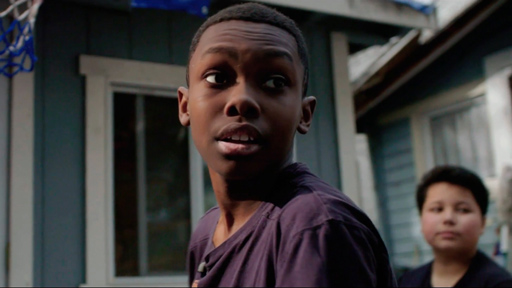Early on in this engaging documentary, director Adam Bolt leads us through the relatively brief history of gene-related medical therapies, which dates as far back as 1974. For decades, scientists had been limited by the inability to isolate individual segments of DNA, but apparently, those days are over thanks to a new scientific tool called CRISPR. The film highlights exactly how CRISPR operates as well as what it offers, which is nothing less than the ability for mankind to reshape the biosphere in ways that might be considered godlike.
It’s fairly heady stuff, but one of Human Nature’s strengths is how it makes complex cellular happenings accessible, beginning with animated sequences that make gene-splicing resemble a video game. But the beating heart of the film are the interviews with those trying to harness this groundbreaking science, including the bioengineers at the forefront, as well as those who stand to be the most profoundly affected, such as patients who might benefit from the experimental procedures that result from CRISPR. The narrative canvas, however, expands to all living creatures, even those that haven’t born yet.
Bolt gradually wades into the territory of Aldous Huxley’s seminal Brave New World, raising concerns that humankind will start tinkering with its own genetic make-up in attempts to create a “perfect” being, which is followed by the revelation that altering a single gene is all it would take to grow bigger muscles or not feel pain. The film eventually puts aside scenarios involving laboratory-bred super-soldiers for a decidedly more personal one. Namely, would we choose to tinker with our own reproductive genetic material—specifically, sperm cells and eggs—in order to prevent some terrible or fatal disease from being passed down to future generations?
It’s a thorny question, and to its credit, the film presents both sides thoroughly and thoughtfully. An advocate, who is also a carrier of hemophilia A, is very much in favor of editing out that gene from her future offspring if possible. However, Bolt contrasts her with parents of a daughter who developed impaired vision and albinism because of genetic traits they both passed down. Home video footage across several years captures many of the challenges that resulted from what initially appear to be disadvantages, though we eventually see how they helped shape her in positive ways.
The interviews are especially helpful because, thanks to popular culture, the concept of genetic engineering tends to go hand-in-hand with amoral tinkering. There are clips from Blade Runner (1982) and Jurassic Park (1994) to drive that point home, although personally, I was disappointed the filmmakers did not include Andrew Niccol’s underrated Gattaca (1997). For the most part, the profiled scientists come across as highly ethical and serious about the repercussions of their work. Indeed, Dr. Jennifer Doudna, a biochemist who helped pioneer genome editing, expresses pangs of conscience over what she potentially unleashed, while others discuss how this technology could help solve climate change and other man-made problems.
Yet the most admirable person in the entire film is one who reappears intermittently: David, a young man who has sickle cell anemia, a genetic disorder that prevents sufficient oxygen from being transported by red blood cells to his muscles, often leaving him fatigued. The sickle cell is caused by a mutation in David’s genes, raising the question of whether CRISPR could be used to help him, but in the meantime, he maintains an uncannily upbeat attitude. His inclusion supports the larger theme that some intrinsic quality beyond our genes makes us who we are, and so no matter what CRISPR has allowed us to accomplish to date, there are still mysteries left to unravel.
Overall, this is an intriguing film that introduces viewers to a cutting-edge new science without ever losing sight of the human aspect.
Human Nature screens on June 22 at AFI DOCS.







Leave A Comment